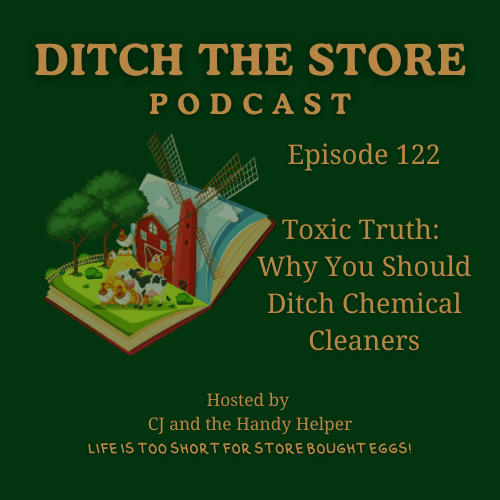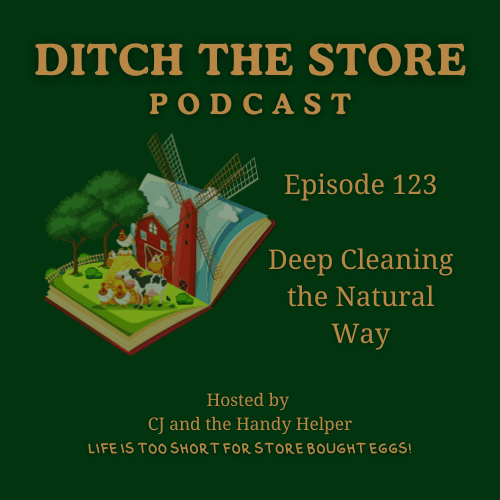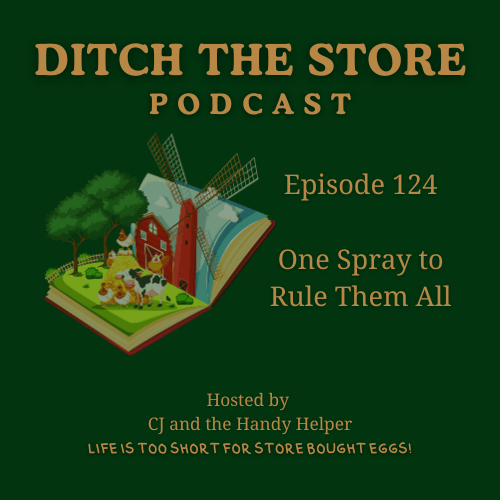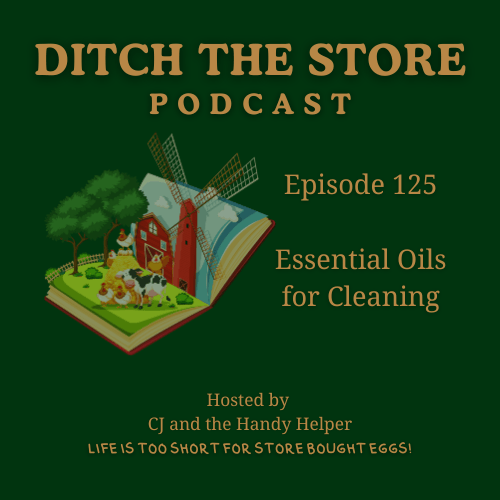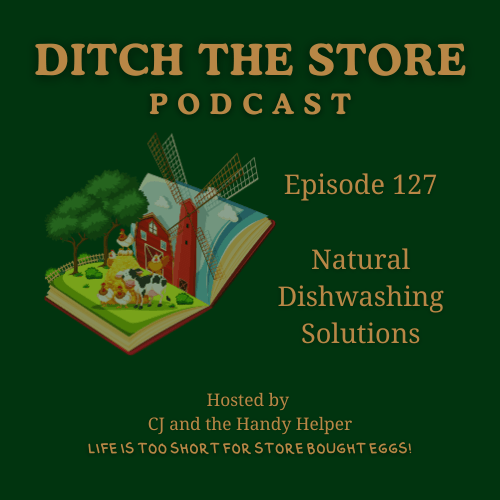
Homemade Laundry Products
As consumers become more conscious of the ingredients in their household products, the demand for homemade and green laundry solutions is on the rise.
Many conventional laundry detergents are laden with chemicals that can irritate the skin, pollute waterways, and contribute to health and environmental concerns.
This growing awareness has led many to ditch the store-bought options and embrace homemade laundry products that are not only cost-effective but also kinder to both skin and planet.
By using simple ingredients such as bicarbonate soda, washing soda, and Sunlight soap, you can create your own effective laundry powder that steers clear of harmful additives.
In this blog post, we'll explore why making your own laundry products is a smart, sustainable choice, and how you can start crafting your own green laundry solutions today.

Why Conventional Products Fall Short
Many of us have grown up using store-bought laundry detergents without questioning their ingredients or impact. Let's take a closer look at why these products might not be the best choice for our families and the environment.
Unpacking Harmful Ingredients
Conventional laundry detergents often contain a cocktail of chemicals that can be harsh on our skin and clothes. Surfactants like sodium lauryl sulfate (SLS) are common culprits that can strip natural oils from fabrics and skin.
Phosphates, once widely used, contribute to water pollution and have been banned in many countries. Yet, some products still contain them or similar compounds.
Fragrances in detergents might smell nice, but they're often made up of undisclosed chemicals that can trigger allergies or skin irritation. Even products labeled "fragrance-free" may contain masking scents.
Optical brighteners are another concern. These synthetic chemicals stick to clothes to make them appear brighter, but they can cause skin reactions and don't biodegrade easily.

Environmental and Health Risks
The environmental impact of conventional laundry products extends far beyond our homes. When we wash our clothes, these chemicals end up in our waterways, affecting aquatic life and ecosystems.
Many detergent ingredients are known to be endocrine disruptors, which can interfere with hormone function in humans and wildlife. This is particularly concerning for developing children and pregnant women.
Skin sensitivities and allergies are on the rise, and laundry products are often to blame. Even those labeled as "gentle" or "for sensitive skin" can contain irritants that cause rashes or exacerbate conditions like eczema.
Long-term exposure to these chemicals through our clothes and bedding may contribute to more serious health issues, though more research is needed to fully understand the risks.
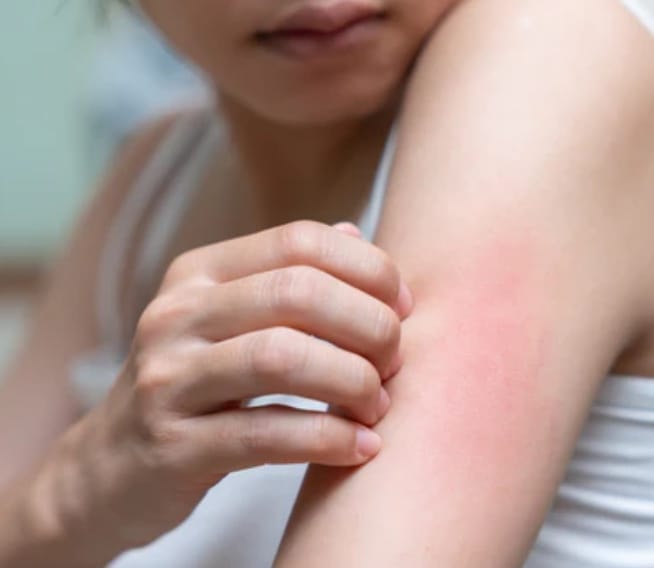
Crafting Your Own Laundry Powder
Making your own laundry powder is simpler than you might think. It's a great way to take control of what goes into your wash and onto your skin.
Simple Recipe Steps
Creating your own laundry powder is a straightforward process that can be done in just a few steps. Here's a basic recipe to get you started:
Gather your ingredients: 1 cup baking soda, 1 cup washing soda, 1/2 cup salt, and 1 bar of grated natural soap.
Mix the dry ingredients in a large bowl, ensuring they're well combined.
Grate the bar soap using a cheese grater or food processor, then mix it into the dry ingredients.
Store your homemade powder in an airtight container, away from moisture.
To use, simply add 1-2 tablespoons to your laundry load, adjusting as needed for heavily soiled clothes or hard water areas.
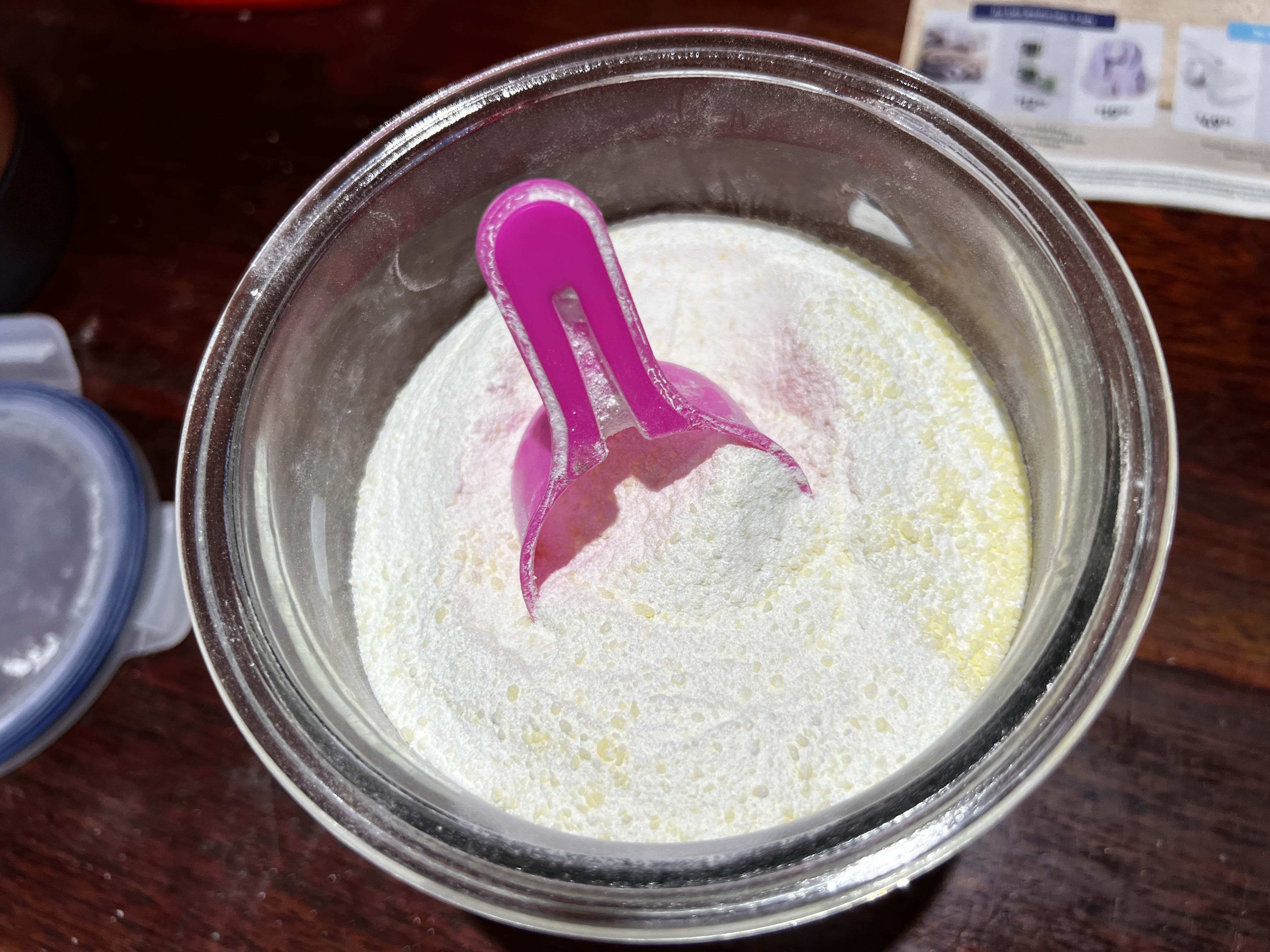
Benefits of Homemade Options
Homemade laundry products offer numerous advantages over their store-bought counterparts. For starters, you have complete control over the ingredients, allowing you to avoid harsh chemicals and potential allergens.
Cost-effectiveness is another major benefit. Making your own laundry powder can save you significant money over time, especially if you buy ingredients in bulk.
Environmental benefits are substantial too. Homemade options typically have a lower carbon footprint due to reduced packaging and transportation. Plus, the natural ingredients are more biodegradable and less harmful to aquatic ecosystems.
Many users report that their clothes feel softer and smell fresher with homemade detergents, without the artificial fragrances that can linger on fabrics.
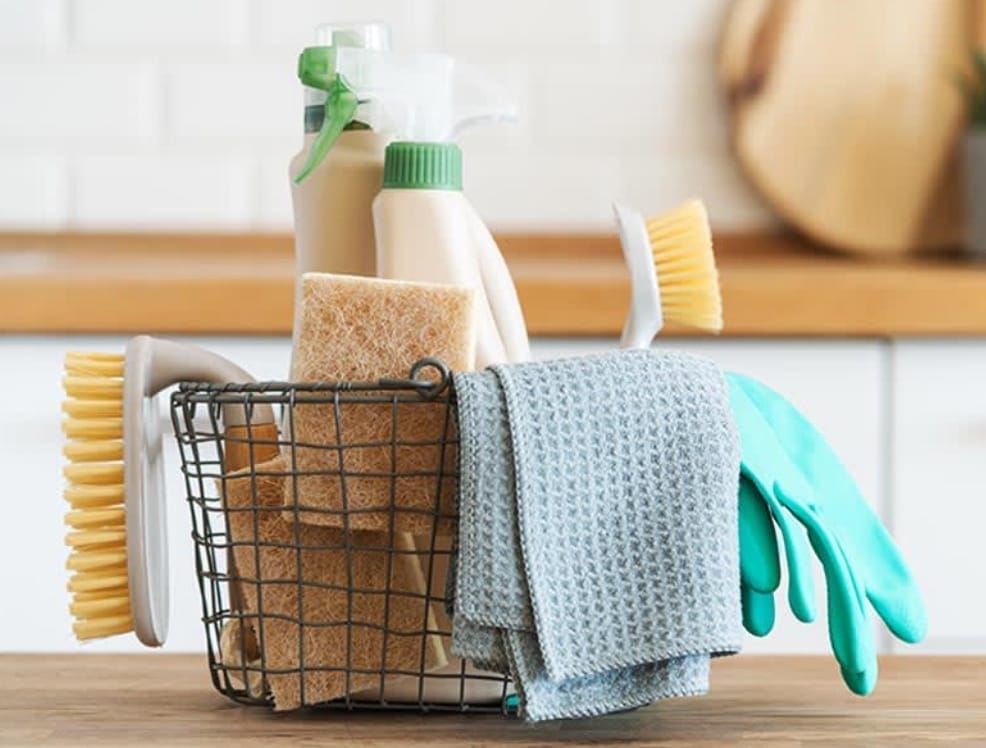
Exploring Fabric Softener Alternatives
Traditional fabric softeners often contain questionable chemicals, but there are plenty of natural alternatives that can leave your laundry soft and fresh.
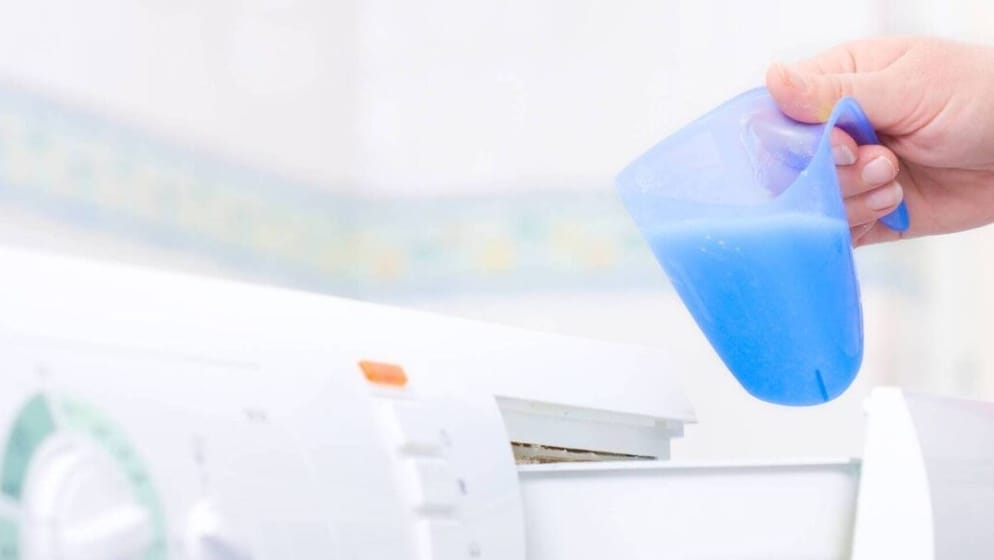
Natural Softener Tips
White vinegar is a fantastic natural fabric softener.
It helps remove soap residue, softens clothes, and eliminates odors without leaving a vinegar smell behind.
To use vinegar as a softener, simply add 1/2 cup to the fabric softener compartment of your washing machine.
For an extra boost of freshness, you can infuse the vinegar with lemon peels or a few drops of essential oil.
Wool dryer balls are another excellent option. They help separate clothes in the dryer, reducing drying time and static cling. You can add a few drops of essential oil to the balls for a natural scent.
Baking soda is also effective at softening water and clothes. Add 1/2 cup to the wash cycle along with your homemade detergent for extra softness.
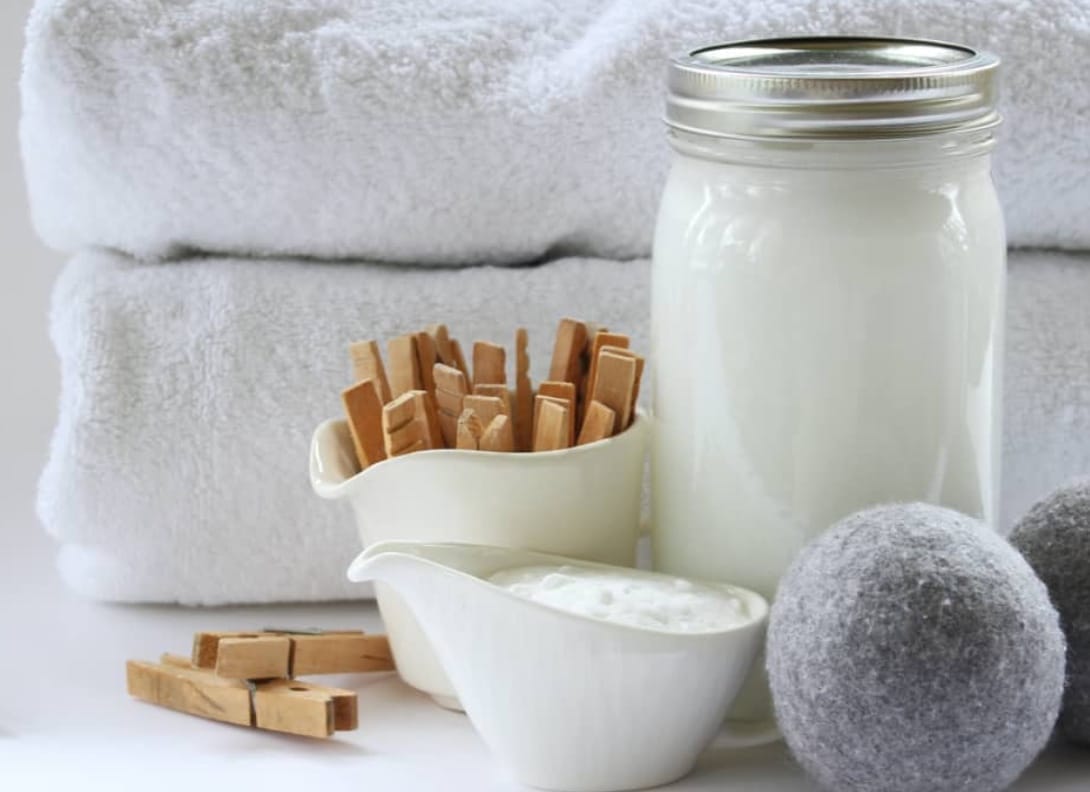
Effective Stain Soak Solutions
Tackling tough stains doesn't have to involve harsh chemicals. Natural ingredients can be just as effective when used correctly.
For general stains, a paste made from baking soda and water can work wonders.
Apply it directly to the stain, let it sit for 15-30 minutes, then wash as usual.
Lemon juice is great for brightening whites and removing fruit stains. Squeeze fresh lemon juice onto the stain, let it sit in the sun for an hour, then wash.
For grease stains, try sprinkling cornstarch or chalk on the spot to absorb the oil before washing. Let it sit for at least 30 minutes, then brush off and launder.
Remember to always test these solutions on an inconspicuous area first, especially for delicate fabrics or bright colors.
BY MOJO HOMESTEAD
